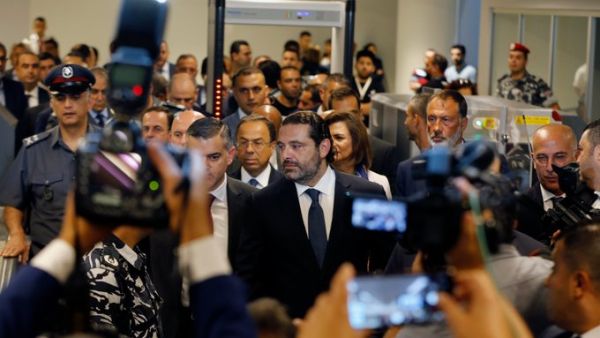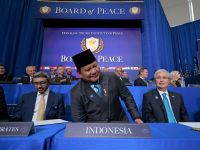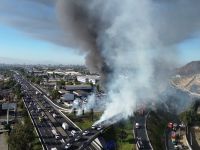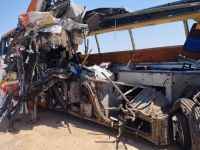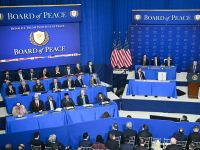Lebanese political sources revealed that Parliament Speaker Nabih Berri sought once again to persuade former Prime Minister Saad Hariri to form a national unity government able to assist Lebanon out of its economic meltdown.
These sources, however, confirmed that Hariri, who visited Berri in his home on Tuesday, once again refused to form such a government, stressing that there is no benefit in the current circumstances to forming a government unless Hezbollah is completely excluded from it.
The sources stated that Hariri reiterated his conviction that all external, Arab and international doors will be closed to Lebanon as long as Hezbollah is in the government in one way or another.
Foreign donors say that Lebanon should implement reforms to address the root causes of the crisis, but the Hassan Diab government has yet to adopt a new approach.
Former Lebanese Economy Minister Nasser al-Saidi agreed with Hariri's conviction that “nobody will lend to the Lebanese government.”
Hariri stressed that what applies to Hezbollah also applies to Gebran Bassil, the president of the Free Patriotic Movement, who is not welcomed in the relevant Arab or European capitals or in the United States due to his close ties with Hezbollah and his ongoing coordination with the group.
The same sources indicated that Hariri is adamant in refusing to form any government to replace the current one headed by Diab in light of Hezbollah's insistence that it be represented in this government, even indirectly through a person affiliated with it.
They said that Hezbollah would consider its absence from government to be a defeat for it and a moral victory for the US administration that it could not tolerate.
Diab was appointed premiere thanks to Hezbollah, which is backed by Iran, Christian President Michel Aoun and Shia Parliament Speaker Nabih Berri.
Neither Hariri, the traditional ally of the West and the Arab Gulf states, nor Druze leader Walid Jumblatt participated in the government.
The meeting between Berri and Hariri came days after Diab said there had been “an attempted coup against the government,” stressing that this coup “failed and did not succeed in deepening the crisis.”
Diab said that his government “enjoys a high degree of trust by citizens and that fact has disturbed many of those who had bet on its failure and started disseminating rumours and fake news, but we continued our work,” without naming specific persons or entities.
He stressed that “the attempted coup has failed, and all of the secret and public meetings and all instructions of internal and joint operations have not succeeded in toppling the workshop on exposing corruption (referring to the government) (...) but they have once again revealed that people's lives do not matter to them, and that their goal is to protect themselves, and not to express the real pain of the people.”
Political sources also said that the discussion between Berri and Hariri touched on the events that took place in central Beirut last Friday evening, when members of Hezbollah and Berri’s Amal Movement were accused of vandalising shops and businesses and chanting sectarian slogans, like “Shia, Shia, Shia” and insulting Prophet Mohamed’s wife Sayyida Aisha.
Berri said that his movement had not engaged in vandalism or burned shops and that its elements intervened only in order to maintain order and stop attacks on private property.
A statement issued following the Berri-Hariri meeting did not touch on the issue of forming a government of national unity, but stressed that “there is no other priority that tops the priority of preserving civil peace and intensifying efforts to stop the slippage towards sedition, and of condemning acts of vandalism that affected public and private properties.”
Hours following the meeting with Berri, Hariri met with Major General Abbas Ibrahim, director general of public security.
Sources close to the president's office speculated that the Lebanese president would hold extensive discussions next week about how to resolve the country's dire financial situation.
The president has already begun inviting heads of parliamentary blocs, the prime minister, the parliament speaker, former heads of government, former presidents, security officials and economic experts to these discussions.
This article has been adapted from its original source.


